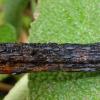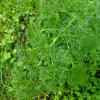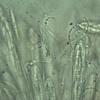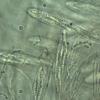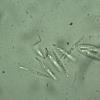
28-02-2026 14:43
A new refrence desired :Svanidze, T.V. (1984) Novy

01-03-2026 18:46
 Robin Isaksson
Robin Isaksson
Hi! This species i se from time to time in the

27-02-2026 17:51
 Michel Hairaud
Michel Hairaud
Bonjour, Quelqu'un peut il me donner un conseil p

27-02-2026 16:17
 Mathias Hass
Mathias Hass
Hi, Found this on Betula, rather fresh fallen twi

01-03-2026 18:02
 Francois Guay
Francois Guay
I found this mystery Helotiales on an incubated le

01-03-2026 14:10
 Antonio Couceiro
Antonio Couceiro
Hola, me gustaria conocer opiniones sobre este tem

... found in the reserve "Rocha da Pena" - on old Apiaceae stems.
The plants did not flower and I don`t know the species. There was no strong smell (no fennel smell or such).
The spores measure about 27-30/3,5-4 µm.
I have no literature on Rhytismatales with me so I cannot compare.
Regards from Lothar

Dear Joey,
thank you very much. I will call my specimen Hypoderma cf. siculum for the present. I know that it is a difficult genus (which genus is easy?).
Best regards from Lothar

